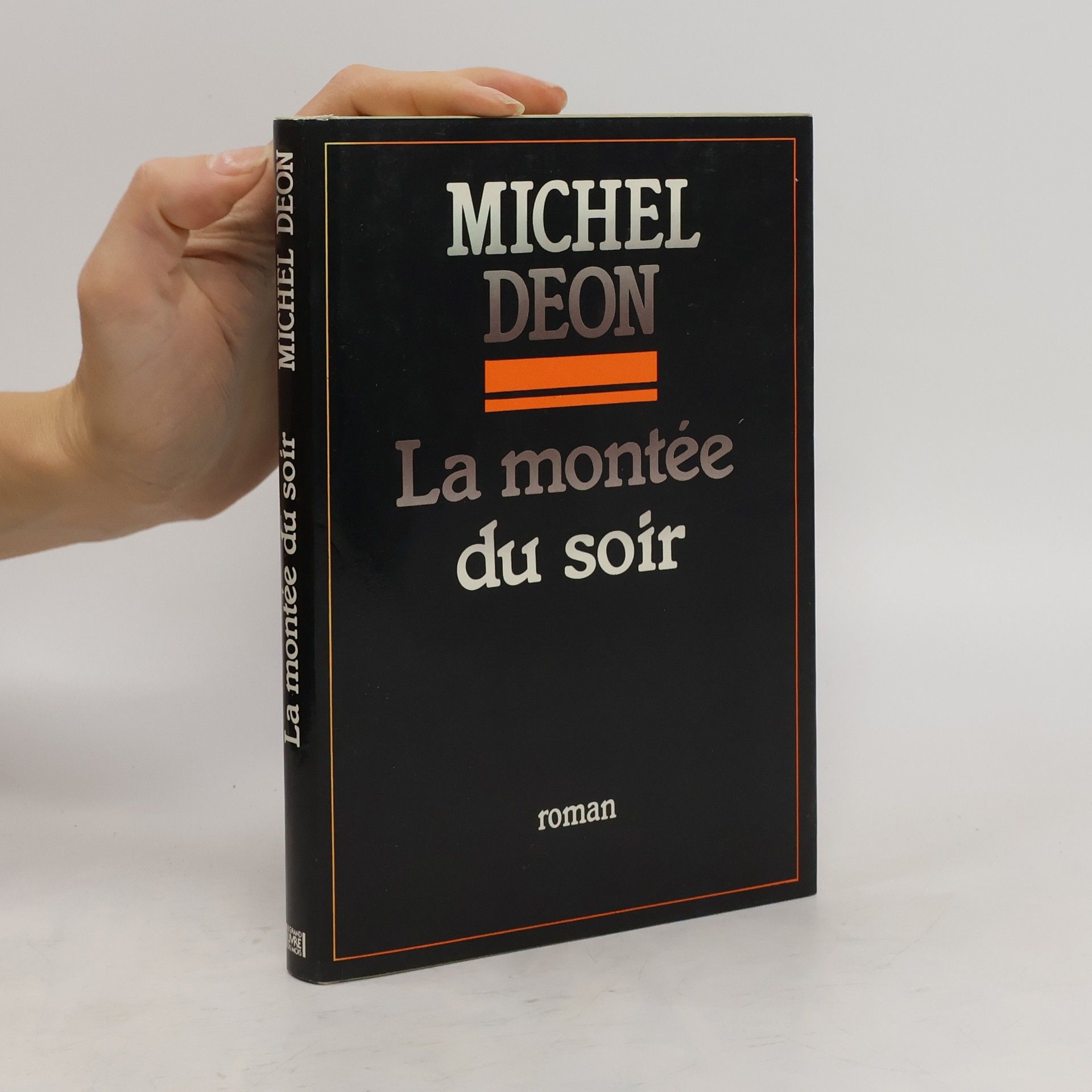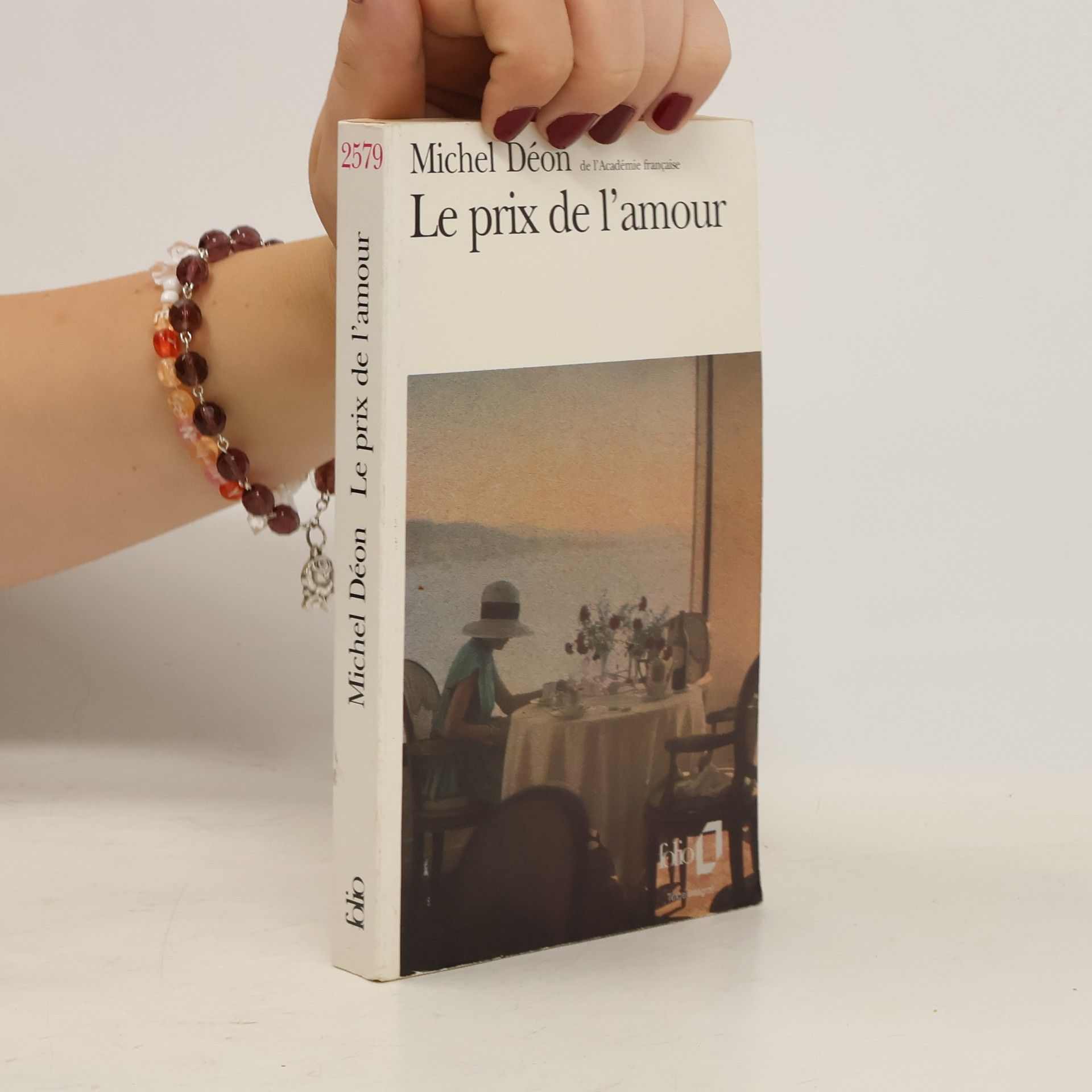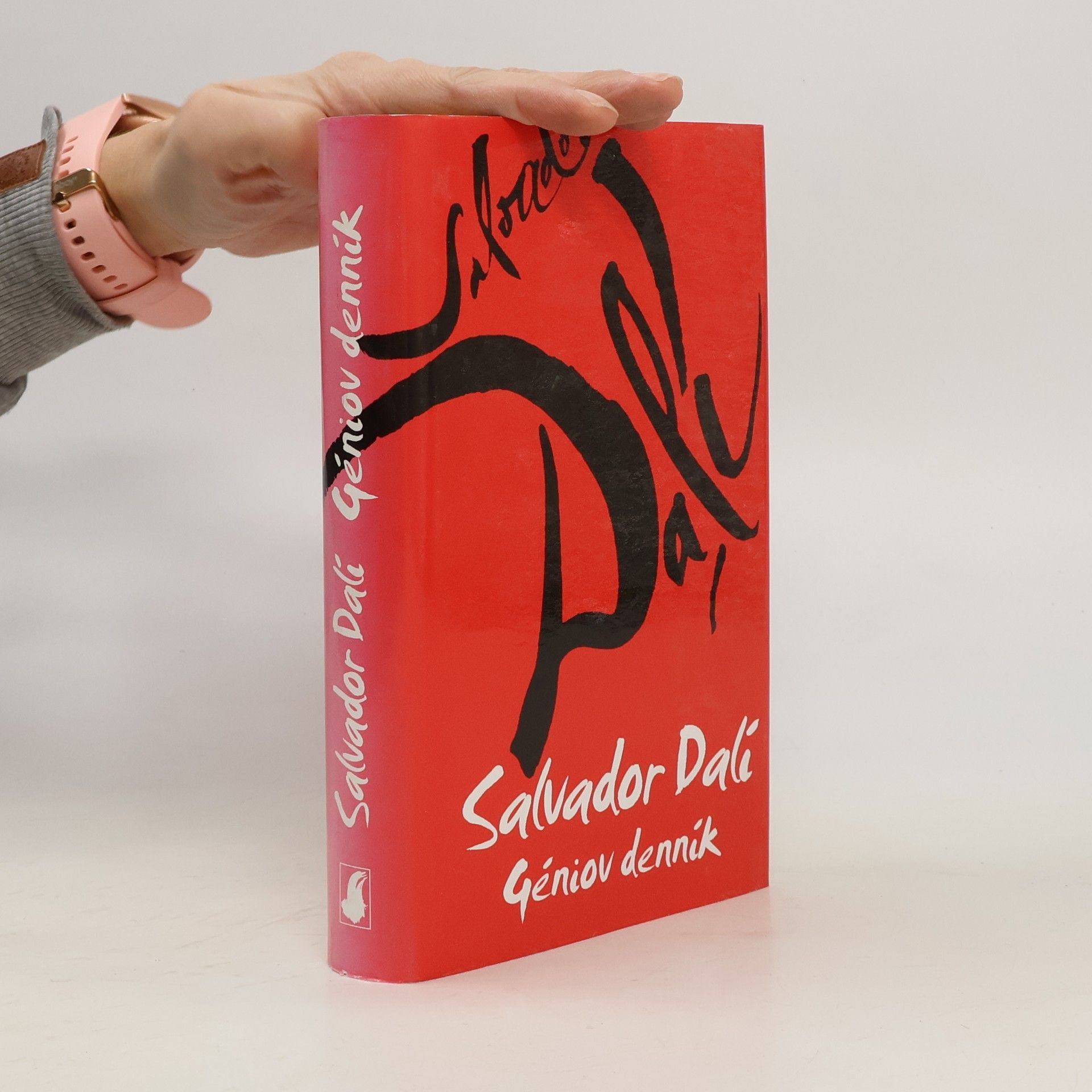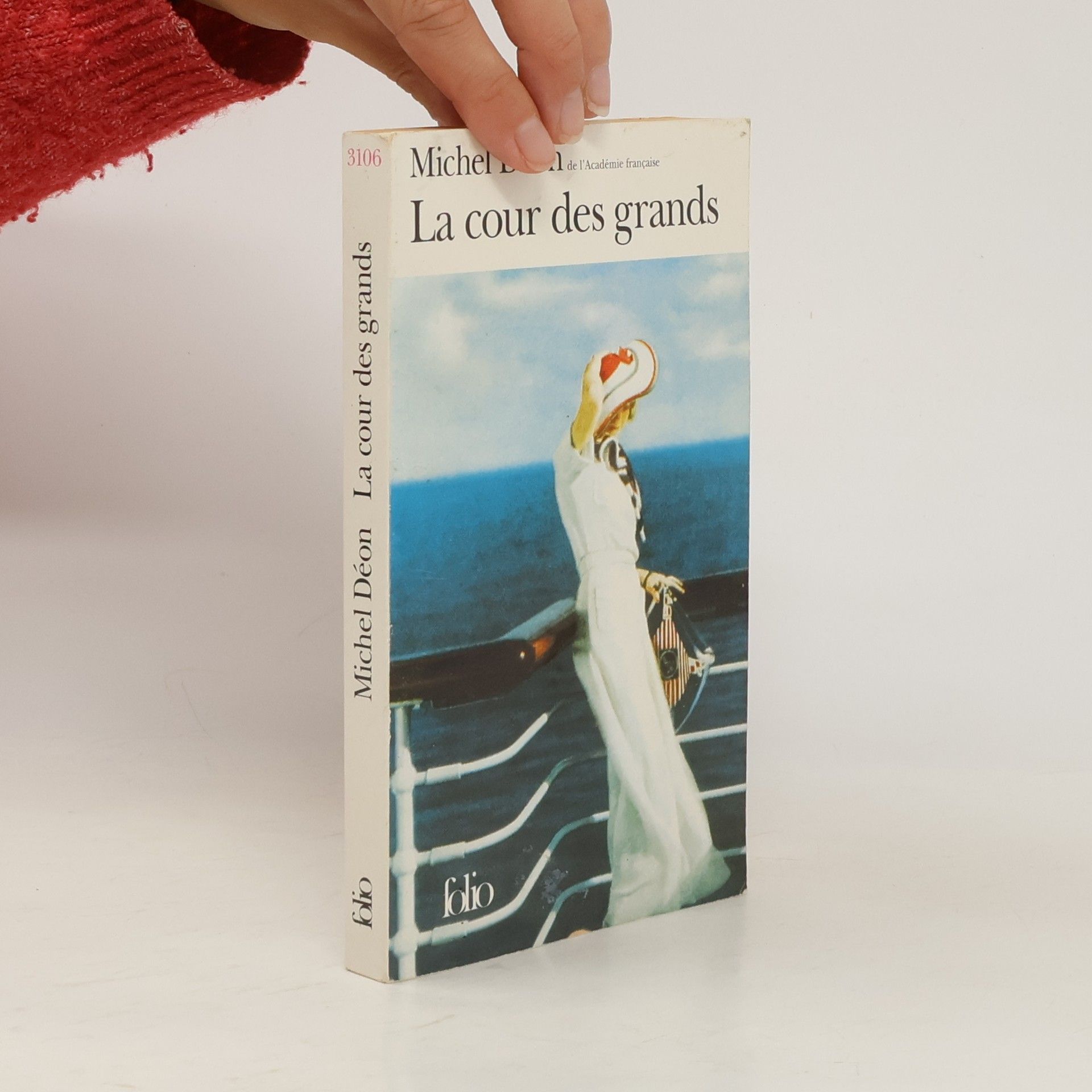Michel Déon Knihy
Michel Déon bol francúzsky prozaik a dramatik, ktorého dielo sa vyznačuje bohatým jazykom a hlbokým vhľadom do ľudskej psychiky. Svoje príbehy často zasadzoval do exotických prostredí a skúmal témy identity, exilu a hľadania domova. Jeho rozsiahla tvorba, zahŕňajúca viac ako päťdesiat diel, vyniká štylistickou eleganciou a rozprávačským umom, ktoré čitateľov vtiahnu do zložitých osudov jeho postáv. Déonove diela sú svedectvom o komplexnosti ľudského života a jeho neustálom putovaní za zmyslom.






The Foundling Boy
- 416 stránok
- 15 hodin čítania
A modern French classic translated into English for the first time.
The Foundling's War
- 464 stránok
- 17 hodin čítania
The sequel to Michel Deon's critically acclaimed classic, The Foundling Boy, following Jean Arnaud in Second World War Paris.
" De Spetsai à Patmos, en passant par Rhodes, Corfou, Mytilène, Skytos, Paros, Antiparos, Naxos, Chypre, Hydra, Kalymnos et Leros, j'ai, sur une trentaine d'années, réuni une gerbe d'histoires, de caractères, de souvenirs qui évoquent le parfum de ces îles et leurs séduction comme aussi leur tristesse, leur solitude et leur déchéance. Des hommes habitent ces lieux privilégiés. L'existence n'en a pas toujours fait de doux agneaux, et, depuis Ulysse et Thésée, nous savons que les Grecs ont plusieurs vérités, mais ce qui est en cause ce n'est pas leur sincérité, c'est leur double appartenance : à l'Occident par le goût et parce qu'ils lui ont donné une civilisation, à l'Orient par nature et parce que la géographie les y oblige.
Folio - 2579: Prix de l'amour
- 272 stránok
- 10 hodin čítania
in8. Relié jaquette.
À quel moment de son existence un homme découvre-t-il que la perte des jouets de sa vie - une canne d'alpiniste, une statuette de corail - l'affecte plus que la perte de la femme aimée ? Et a-t-il vraiment perdu ces objets ou ne l'ont-ils pas plutôt quitté comme on abandonne un navire en détresse avant qu'il sombre ? Gilbert Audubon est un homme sain que la vie a gâté, qui aime les plaisirs autant que les risques et les efforts, et qui rêve d'amours au dessin parfait comme un jardin japonais. Il ne lui manque que d'avoir connu une certaine solitude. Quand il la rencontre, il sait que c'est le moment de montrer du courage. Heureusement, Rhadamanthe, son chien, est avec lui.
Vous voyez, Chrysoula est un cas unique. Elle rassemble tous les signes du zodiaque sur son visage de déesse. A la racine du nez, le grain de beauté est lié à la Balance ; sur les pommettes, au Sagittaire et au Scorpion ; sur la mâchoire, au Capricorne ; entre le nez et la lèvre supérieure, au Verseau ; sur le menton, aux Poissons... Tout se passe sur son visage comme dans la carte du ciel. Il n'y a qu'une Gracque à qui pouvait échoir cette fortune. Je vous passe le détail des grains de beauté qui illuminent son corps. On y lit à livre ouvert le destin du monde. Voudrais-tu apparaître nue devant notre ami mon alcyon ?
Géniov denník
- 304 stránok
- 11 hodin čítania
Od čias Veľkej francúzskej revolúcie sa rozvíja kreténska tendencia považovať géniov (bez ohľadu na ich diela) za ľudské bytosti vo všetkom viac-menej podobné ostatným smrteľníkom. A to je kardinálny omyl. Tento zvrátený názor neplatí pre mňa ako umelca dnešnej doby, ktorý dostal do vienka nevšedný talent a nespútaného ducha, a už vôbec ho nemožno akceptovať v prípade unikátnych, kvázi božských géniov renesančného umenia, kde sa za jedného z vrcholných predstaviteľov pokladá Raffael Santi. Táto jedinečná kniha je rukolapným dôkazom, že každodenný život génia, jeho psychika, krv kolujúca v žilách, tráviaci systém a kadejaké neduhy sa výrazne odlišujú od jednotvárneho životného štýlu celého zvyšku ľudstva; zároveň je to azda prvý denník, ktorý napísal génius, presnejšie fenomenálny génius, ktorého postretlo nevídané šťastie, že sa zasnúbil s nemenej fenomenálnym géniom Galy, svojej nenapodobniteľnej múzy a nadovšetko výnimočnej manželky, čo sa už za života tešila vznešenému prívlastku legendy... ... Pre tento pozoruhodný, prísne tajný a zároveň pravdivý dôvod bude nasledujúca výpoveď (podotýkam, že bez môjho priameho zásahu) od samého začiatku až do konca nevídaná, neslýchaná, nepretržitá a neodvratná, lebo ide o nefalšovaný denník vášho verného a poníženého služobníka Salvadora Dalího.
La cour des grands
- 304 stránok
- 11 hodin čítania
Arthur Morgan est un jeune Français des années cinquante, qui débarque aux Etats-Unis pour y étudier naïvement le droit des affaires. Sa mère, veuve de guerre qui brûle d'ambition pour lui, veut que, d'un milieu désargenté, il passe dans ce qu'elle appelle la cour des grands. Avant de disparaître et de laisser à son fils un cuisant remords, elle aura la joyeuse illusion de sa réussite, sans être témoin de ses échecs sentimentaux. Jusqu'à ce qu'il les surmonte, ces échecs réduiront la réussite d'Arthur à la très vaine victoire d'un froid calculateur. La rencontre avec Augusta, la Brésilienne, est une de ces défaites dont on ne se relève qu'en portant un masque. La leçon donnée par Elizabeth mettra vingt ans à cicatriser. C'était un malentendu. L'histoire des amours discrètes ou célèbres n'a jamais été qu'une suite de malentendus. Augusta, Elizabeth et Arthur n'échappent pas à cette fatalité dont un homme guéri par l'expérience est heureux de triompher fût-ce vingt ans après.



